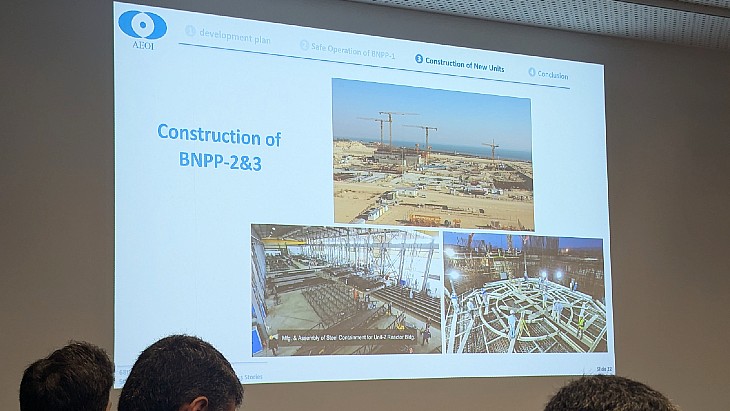US suspends financial participation in Iter
The USA has admitted that it will have tosuspend financial participation in the Iter experimental fusion reactorproject due to cuts in the federal research budget.
In its omnibus appropriations bill for fiscal 2008, announced in December, Congress included only $10.7 million for US work on the project. The US financial commitment for Iter is $1.1 billion, and the Bush administration had proposed spending $160 million in 2008 to start purchasing components for the project.
Although the Department of Energy's Office of Science's total science budget increased 4.6% to $4 billion, most of those increases were for supercomputers and biological research. Congress withheld money for DoE's $160 million commitment to Iter, the international fusion reactor in France, and slashed funding for the International Linear Collider (ILC), the next-generation particle accelerator, from $60 million to $15 million.
Raymond Orbach, Under Secretary for Science at the DoE, wrote to Kaname Ikeda, director general of the Iter Organization (IO), on 10 January. In his letter, Orbach said: "As you know, besides a modest amount for supporting research and development, the US fiscal year 2008 appropriations provided no funding for the US contributions to the Iter project." He added, "I want to let you know that the US is firmly committed to meeting our obligations under the Iter Joint Implementing Agreement and that we are doing everything possible to rectify the situation."
Orbach said, "For the time being, however, there will be some limitations on our ability to fully participate in Iter activities: we will be forced to defer our 2008 cash contributions to the IO; postpone some US design, research and development activities; and forego initiating our long-lead hardware procurements."
Neil Calder, a spokesman for the Iter project, told Agence France-Presse, "This is a very worrying situation, but we cannot come to the conclusion that the United States will quit Iter." He added, "It's not a cash contribution that has been withdrawn from the project, but equipment that the Americans were to have constructed that will be delayed."
On 4 January, 21 members of the US fusion community sent a letter to members of Congress and the Executive Branch protesting the removal of Iter fund in the fiscal 2008 appropriations bill. The letter said: "Failure by the United States to sustain its international commitments to Iter seems certain to establish the United States as an unreliable partner not only in the Iter project, but in many other areas of science. This comes at a time when the expense and scope of many critically important scientific activities suggest international partnership and cooperation. Therefore, for the sake of the international and domestic fusion effort and for the sake of the US reputation in the international scientific community, we most respectfully urge that funding be provided for continued US participation in Iter."
Iter will be a crucial step in the development of nuclear fusion power stations. The 500 MWt device will be the proving ground for technologies and operational procedures leading to the eventual exploitation of nuclear fusion as a source of abundant clean energy. Parties involved in the project are: China, India, Japan, Russia, South Korea, the USA and the European Union. The resulting technology will be available for use by all participants.
The Iter program is projected to last for 30 years, with ten years of construction followed by 20 years of operation, although this may be extended. In total the project is expected to cost just under $15 billion.
_92619.jpg)

_84504.jpg)






_50521.jpg)


